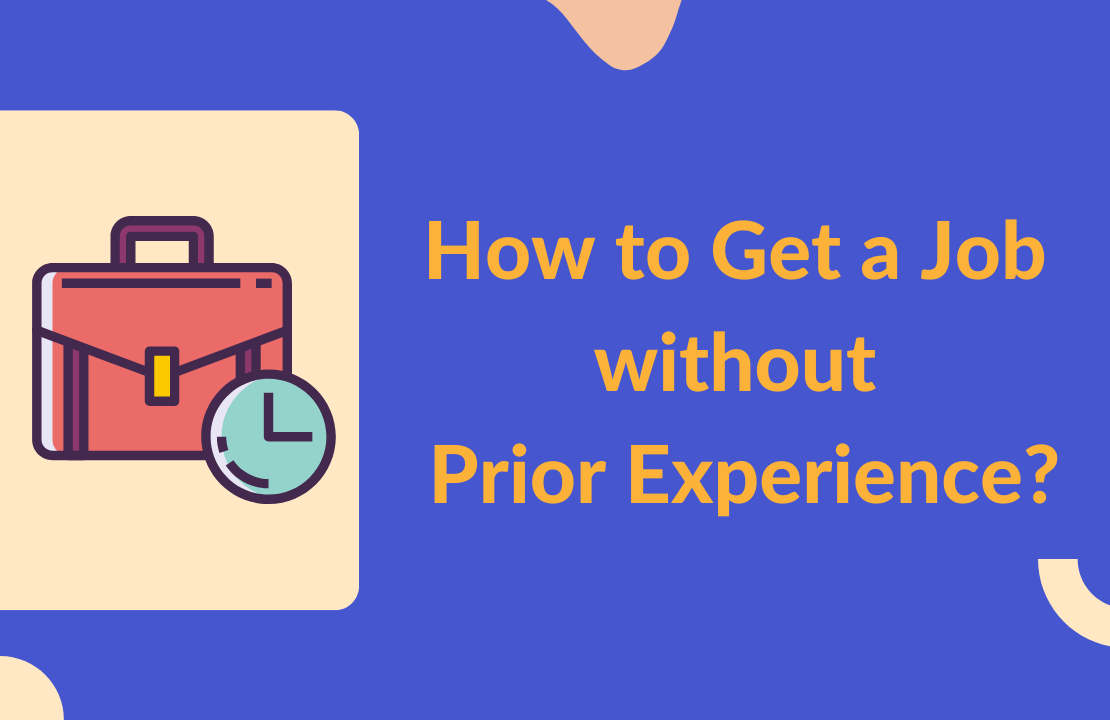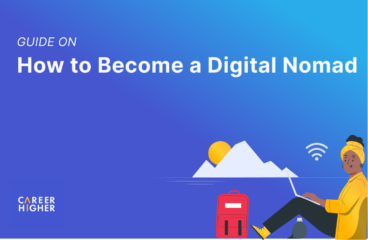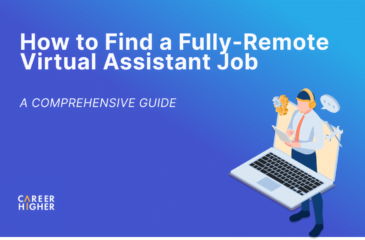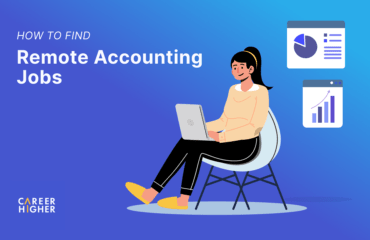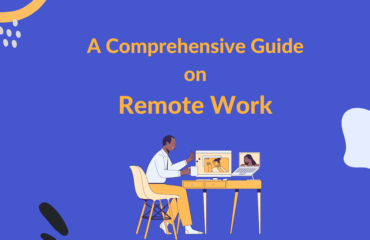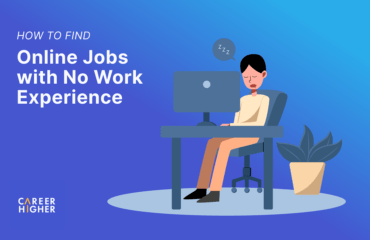Table of Contents
“But unfortunately, we have decided to proceed with more suitable candidates…”
This is one of the most hurtful lines for a job seeker. Still, many candidates hear such things every day from recruiters. There can be various reasons for rejection, but one of the most cited is, “Your background/experience does not match what we are looking for.” If you are switching careers or exploring a new industry, such feedback makes sense. But if you are looking for your first job, hearing this feedback is very frustrating. “How can I build experience without getting a job?”Read on to find some answers.
1. Expand your knowledge
When targeting a specific role or industry, it is always beneficial to upgrade your qualifications or just increase your knowledge about the sector. You can do this by taking classes or workshops or getting certificates and diplomas. It will not only help you improve your understanding of the industry but also help expand your network. While a long list of qualifications and certifications does not substitute for work experience, it signals the employer that you are committed to learning and pursuing a career in the industry. Employers will be more likely to give you a chance if you have a solid educational background.
Learn everything there is to learn about your target industry or job. Apart from taking online courses and certification, you can also learn from the community. Find blog forums, groups, and podcasts specific to your goal. Interact with the creators of these blogs and podcasts, share your ideas about their work regularly, and become their top audience. This way, you can learn from experts in your field while also building your professional network.
Commercial awareness is also essential as it shows your interest and knowledge of the field. Even though you will not make policy decisions from the beginning of your career, excellent commercial awareness can get you brownie points for entry-level roles. Reading current news and trends is also a perfect way to improve your commercial understanding. Before networking, make sure you know the critical commercial trends of the industry you are targeting.
2. Ask and tell everyone
It cannot be overstated how important it is to network with people working in your target industry. When you start with no experience, your network is as important as your application itself. A recommendation from someone who can vouch for you can go a long way. Informational interviews are a handy conversational tool for professional networking. Ask people questions about their work and what advice they would give to someone starting in their industry. This can help you learn more about the career you are interested in while also making connections.
Social media platforms like LinkedIn and Twitter are excellent platforms for building and maintaining your professional network. Reach out to people on such platforms and ask them if they would be willing to spare some advice and guidance. You can also look for mentors in your target industry and try to connect with people whom you believe can help you improve your soft skills and applications. Among your offline network, make sure people know you are pursuing a career in your target industry and be ready with your pitch, updated resume, and an attractive LinkedIn profile.
3. Tell your story
Your story serves as your pitch to potential employers and connections. It should have information that would captivate the attention of people who might help you get your first job. Have it ready in different versions, a ten-second version, a minute version, a 5-minute version, etc. While you are the only person who can tell your story the best way, we suggest including some key points:
- Where have you been? The journey that motivated you to pursue a particular field or industry.
- What have you done? Use your background to tell about the transferable skill you have learned.
- Why are you here? Share your passion for the industry or role you are targeting.
- Where are you headed? Remember to tell people about your goals and vision when you tell your story.
Your resume and LinkedIn profile should also reflect and support critical parts of your story. Write a resume that coherently summarizes your background supporting your future goals. Focus more on your talents and skills rather than just job titles, and showcase all the great things you can achieve. Your resume should discuss the things you have done in a relevant way to what you want to do. If you are looking for your first job or looking to switch careers with no prior experience in your target field, dig for transferable skills you have developed in previous activities or careers and emphasize those on your resume. Even though it may seem that you have no relevant skills for your target role, there are always a few skills and job duties that overlap.
4. Substitute for experience
One way to gain experience is to start your project relating to your target industry and job. Coming up with your project will demonstrate an incredible amount of initiative and show that you have or are willing to learn the skills required to work in your target industry. It not only gives you experience but also helps you develop skills like:
- Communication
- Networking
- Critical thinking
- Problem-solving
Another way to garner professional experience is to work, in whatever form you may find it. This can be an internship, part-time gigs, or volunteer work. While these options are not financially attractive, you can ask for a professional reference for a job application or an introduction to an important person. Look for start-ups with a great idea and no money to execute it. Keep a few things clear while going down this path:
- Be specific about what value you will provide
- Be clear about the value you will receive
- Be specific about the time frame
Take up whatever work you can find. It doesn’t matter if the role is different from what you want. The key is to get your foot in the door. Then, you may switch over to the part or industry of your preference. Not every professional journey is a straight path.
5. Keep applying
There might be times when you may not feel confident about your profile – we highly recommend applying anyways. Your chances of getting the job are always relative to the application pool, and applying at least gets you in the race. Moreover, crafting a perfect application is a skill. This means, that the more you practice it, the better you will become. Write a different resume and cover letter for each job application and try to improve your materials with each application.
The key is to stay consistent with your job hunting. Create a schedule, stick to it, and send out at least a fixed number of applications each week. You may not hear back from many of them, but you will get some opportunities to interact with the employers if you are consistent.
Getting a job is always a difficult task, but breaking into an industry or role is even more challenging when you have no prior experience. However, if you follow the tips above, you can improve your chances. Keep working on your profile and application, but also take care of yourself. Prioritize your mental and physical health, take breaks, talk to other job seekers, and try to change your surroundings, whenever you can.
